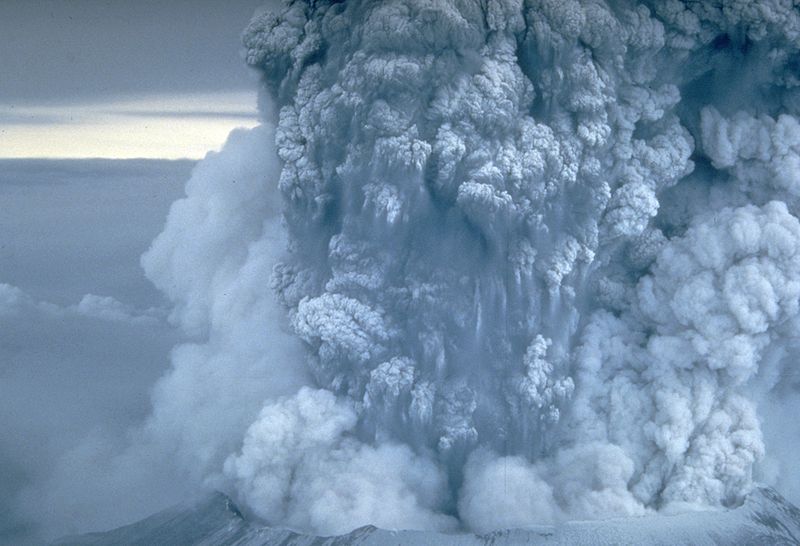EXPLORE: Natural Causes for Climate Change
5. Greenhouse Gas Concentrations
Since greenhouse gases trap the heat that radiates off the planet's surfaces, what would happen to global temperatures if atmospheric greenhouse gas levels decreased? What if they increased? A decrease in greenhouse gas levels decreases global temperature and an increase raises global temperature.
Greenhouse gas levels have varied throughout Earth's history. For example, CO2 has been present at concentrations less than 200 parts per million (ppm) and more than 5,000 ppm. But for at least 650,000 years, CO2 has never risen above 300 ppm, during either glacieal or interglacial times.

Volcanic eruptions are a natural process that releases the greenhouse gas CO2 into the atmosphere. Photo courtesy of Wikimedia.
Natural processes that release CO2 into the atmosphere include volcanic eruptions and decay or burning of organic matter. Processes that remove CO2 from the atmosphere include absorbtion into plant and animal tissue. When plants are turned into fossil fuels, the CO2 in their tissue is stored within them. So, the CO2 is removed from the atmosphere (until it is burned later on).
Source: USOE OER Resources. Retrived from http://www.slcschools.org/departments/curriculum/science/documents/4-Earth-Science.pdf on August 28, 2013.